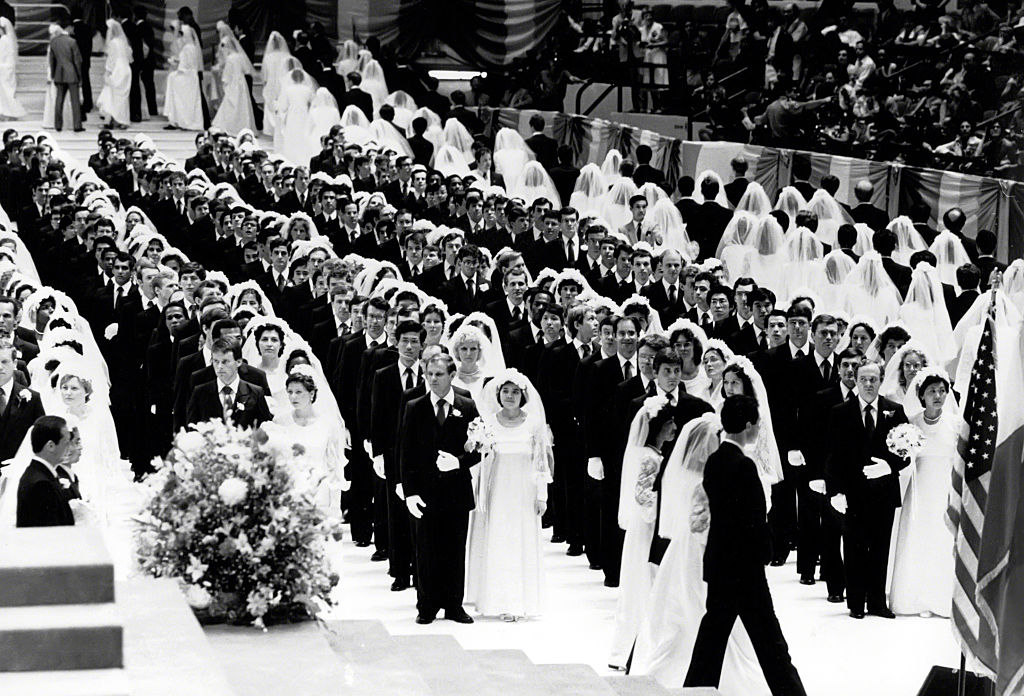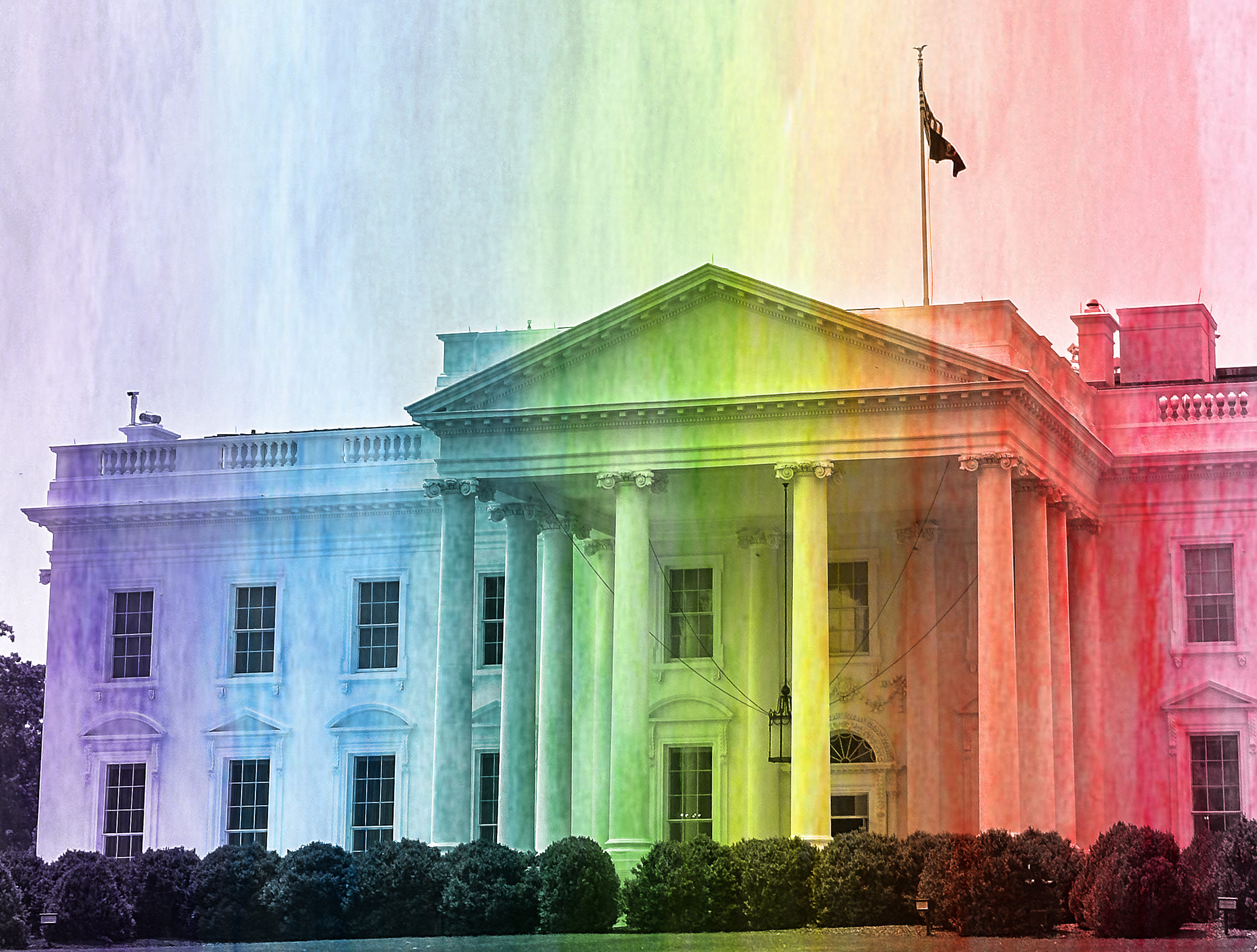We should have seen this coming!
The Transgendered ERA

Textualism will not prevent the legal deconstruction of sex.
An old line had it that “the question was so old that we’ve forgotten the answers.” The converse was that “the answers are so old that we’ve forgotten the questions.”
Of all things, the legendary Equal Rights Amendment has risen from the shadows of the past, more than 35 years past its expiration and sell-by date. Legislatures under Democratic control in Virginia, Illinois, and Nevada have claimed to ratify the Amendment, yea these many years late, and make it now part of the Constitution. Attorneys General from these States have moved into federal courts to argue that the weightiness of the matter should override any trifling concern for timeliness. And yet, the shift in time used to matter for liberals whose hearts beat with the “living Constitution.” But the liberals seem blithely unconcerned now that, with the shifts in language and convention, the Amendment they are ratifying may be quite altered in its meaning.
From years back we may recall the proposal of this Amendment, and we may still recall the answer: that the ERA was indefensible and unworkable at every level. But we no longer remember the relentless battery of questions that made the answers so evident and put that proposed Amendment mercifully away.
A Unisex Amendment?
The withering string of questions came out in one dramatic—and delicious—moment in a kind of ambush that took place at a hearing of the Senate Judiciary Committee in 1983.
The Republicans still held the Senate in the first term of the Reagan Administration, Orrin Hatch was chairman of the Committee, and Paul Tsongas of Massachusetts came in to make the case for the proposed Amendment. Hatch asked Tsongas whether he would be open to questions. Tsongas could not say no, but he would later express indignation over the stream of questions that evidently came as a surprise to him.
The Equal Rights Amendment read: “Equality of rights under law shall not be denied or abridged by the United States or any state on account of sex.” Would the Amendment forbid federal aid for women’s colleges, or federal assistance for students in these colleges? Would it forbid aid to Catholic and Orthodox Jewish seminaries, which ordained only men as priests and rabbis?
The National Organization of Women had already come out against tax exemptions for “any church actively opposed to abortion or ordaining women.” It was expected, of course, that the ERA would establish a firmer constitutional ground for abortion, for the laws that barred or restricted abortion would bear on surgeries that were performed solely on women.
By the same logic the ERA would cut off the moves of Congress to withhold federal funding for abortion. And it could foreclose as well the freedom of Congress to offer protections of “conscience” for the doctors and nurses who do not wish to become complicit in these surgeries.
These are also the rare places these days where the political branches may still summon the nerve to flex even a remnant of the authority they exercised in the days of Lincoln to counter and narrow decisions of the Supreme Court. For in these moves, the Congress and President would deny funding and moral approval; they would be registering, even in a muted way, that they had not fully accepted the rightness of that “right to abortion” created by the Court.
But Orrin Hatch kept up the beat: Would the Amendment bar policies of preference for veterans, since veterans of wars were overwhelmingly male?
Would the ERA bar different rates for men and women in insurance (even though the sexes may show different rates at times for “life expectancy” and accident)? Would the ERA bar the Congress from drafting only men into military service, and would it be a constitutional violation if no women were sent into combat?
Along with everything else, a heated issue at the time was whether the ERA would bar the laws that confined marriage to couples composed solely of men and women. A note in the Yale Law Journal argued that the ERA would indeed dissolve the laws that forbade same-sex marriage.
Tsongas was curiously caught off guard by these rather obvious questions. He replied tartly that “We have what is called the Supreme Court, which is in a position to resolve those particular matters.”
But the judges would have to face precisely the same question being put to Tsongas as one of the sponsors of the Amendment: What would that Amendment plainly mean? What judgments on these matters would spring from the very logic of this Amendment?
This was strikingly different, say, from the 20th Amendment, which stipulated that “the terms of the President and Vice President shall end at noon on the 20th day of January,…and the terms of their successors shall then begin.” That provision has required no flights of genius to interpret.
The question arising for the ERA was whether it forbade virtually all discriminations based on “sex” in a sweeping categorical way. Or on the other hand, was it yet open to the notion that discriminations based on sex were still plausible and legitimate, say, in colleges, the military, and athletic teams, to say nothing of locker rooms and bathrooms. If the latter, then the Amendment would offer nothing that is not already available under the Equal Protection Clause of the 14th Amendment.
The matter was crystallized at the time by the late Philip Kurland of the law school of the University of Chicago, when he remarked, in challenge, that “the ERA was either a unisex Amendment—or it was nothing.”
Textualism is Not Enough
But there is a deeper dimension to the change, which may go largely unnoticed by many members of the Federalist Society.
Yes, the ERA would extend beyond the federal government; it would override any laws in the States that contained any lingering discriminations between the sexes. But what our friends doing “conservative jurisprudence” are less apt to notice is the force and dynamism of the “moral” judgment that would come along inescapably with this Amendment: It is not merely that discriminations based on sex would be barred. They would be pronounced as deeply “wrong,” and they would fire the moral imagination.
People would be cued then to notice, throughout the landscape, all those parts of our lives where differences in “sex”—and “sexuality”—can now be discovered.
Who could have imagined in the 1950s or even 1960s that legislatures in the States and cities could actually pass laws decreeing penalties for employers or landlords who would dare express a personal distaste, or a moral objection, to the homosexual life? Laws barring discriminations based on “sexual orientation” are abounding now in the land. They have been fueled no doubt by the parts of the Civil Rights Laws that bar discriminations based on “sex”; and yet they run well beyond anything that has been enacted in federal law. And is it really unimaginable that legislatures, instructed and fired by this new principle, may actually forbid the formation of new private, secondary schools confined to boys or girls?
When it comes to the “transgendered,” any principle contained in the laws on discrimination have been run well past the edge of anything plausible or coherent. Any serious deliberation over the ERA today will be quite radically transformed by this new phase in our politics. For since that brief moment when the ERA rose brilliantly in the firmament—and then flickered out—the very meaning of “sex” has become a fiercely contested term in our courts.
The Supreme Court has the question of “transgenderism” before it now, with a former funeral director, claiming to be a former male, litigating over his firing (Harris Funeral Homes v. EEOC). Title VII of the Civil Rights Act barred discriminations based on “sex” as well as “race”; but no one imagines that anyone in Congress voting for that bill in 1964 had in mind “gender identity” or “transgender status.”
That has been the conservative line in fixing on the meaning of the “text.” But at the Lawyers’ Meeting of the Federalist Society last November, two liberal figures in the legal academy, William Eskridge and Neil Kinkopf, were in high spirits as they twitted the conservatives over “textualism”: the statute, they said, simply barred discriminations based on “sex,” and the cases involve people turning away from others based decisively on their view of their “sexual” identity.
The conservatives are in a state of illusion if they don’t see that appeals to textualism will not carry the day.
A Rendezvous With Nature
They need to remember Lyman Trumbull.
Trumbull was the Republican leader who steered through the Senate the Fourteenth Amendment. Trumbull had to assure his colleagues that nothing in that Amendment would challenge those laws in Illinois as well as Virginia that barred inter-racial marriage. And he knew that if he couldn’t offer that assurance, the Amendment wouldn’t have a ghost of a chance of passing.
With further reflection we’ve made our way to a more expansive and more accurate sense of “racial discrimination.” It simply falls now to liberal lawyers to argue, in the same vein, that the meaning of “sex” must be understood in the same, enlarged way that has come along with the drift of time, and alterations in our language, over the last 50 years.
That argument will not be met by bringing out the lexicons or dictionaries on what “sex” meant in 1964. The argument can be met only by bringing out the textbooks on those objective truths in nature, in structure and hormones, that separate males and females.
The States that had earlier ratified the ERA had no inkling of the argument over sexuality that would now be carried over into the Amendment they had ratified. If the backers are serious—and honest—they should introduce the Amendment anew; own up to the meaning that liberals would attach now to discriminations based on “sex,” and open themselves anew to the old questions, bound to come back again.
The American Mind presents a range of perspectives. Views are writers’ own and do not necessarily represent those of The Claremont Institute.
The American Mind is a publication of the Claremont Institute, a non-profit 501(c)(3) organization, dedicated to restoring the principles of the American Founding to their rightful, preeminent authority in our national life. Interested in supporting our work? Gifts to the Claremont Institute are tax-deductible.
Ladies, go from cheap date to soul mate with this one neat trick.
A second-wave feminist fails to discern failure
tfw the dating app is creepier than the date.
The exposure of WPATH and Andrea Long Chu’s cry of panic.
The replacement of Easter by this new feast day in the progressive liturgical calendar is a provocation.






